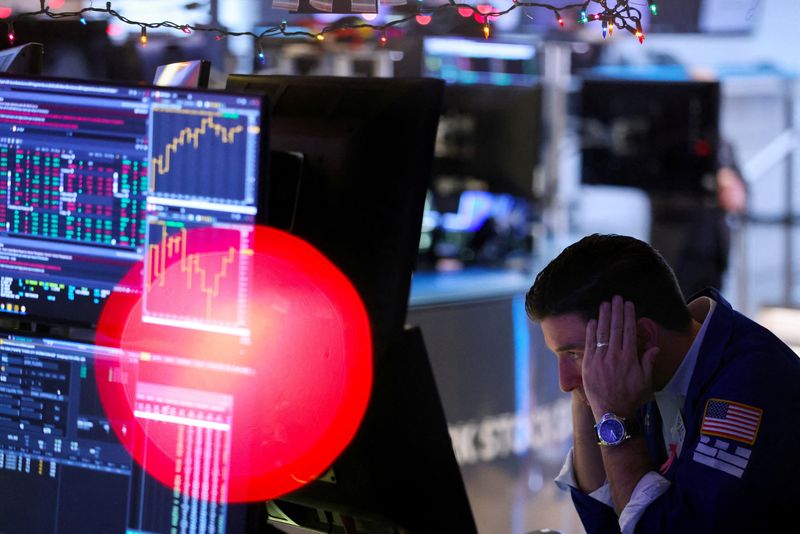Financial events of today
2022.12.20 06:35
[ad_1]

Financial events of today
Budrigannews.com – The Bank of Japan’s decision to finally join its G7 counterparts in effectively tightening borrowing rates ranks among the year’s shocks, at least in terms of timing.
The Bank of Japan (BOJ) raised its long-standing cap on 10-year Japanese government bond yields by a quarter of a percentage point to 0.5% in the final major central bank set-piece of the year. This sent those yields and the yen skyrocketing, further compressing stocks.
There had been reports and speculation in recent days that a change in the central bank’s super-easy policy was in the works, with inflation numbers expected to show price increases approaching twice the BOJ’s 2% target. However most financial backers felt that was just possible when BOJ boss Haruhiko Kuroda ventured down in April.
The move on Thursday was presented in a hazy manner, with Kuroda stressing that the 10-yield target remained unchanged and that the only change was a 0.5 percentage point widening of the permitted trading band around that to 0.25 from 0.25 previously. It was a specialized shift to further develop market working, he demanded.
However, they switched right away to the new cap after 10-yields had been pressing on the band’s ceiling. The majority of analysts interpret this as the beginning of a gradual tightening process.
Following the decision, ING economist Min Joo Kang stated, “We think Governor Kuroda is trying to pave the way for policy normalization before stepping down,” despite the denials.
With U.S. Treasury and European sovereign debt yields rising in their slipstream, Japan’s 10-year bond yields almost doubled close to the new target of 0.5 percent. Ten- and 30-year Treasury yields reached all-time highs for the month.
The yen surged nearly 4% against the dollar, the euro, and the pound sterling. The dollar/yen exchange rate fell nearly 3.5 percent from Monday’s New York close to its lowest level since August. This is a 13% decrease from the year’s highs in October, when the BOJ had to intervene to buy yen on the open markets to stop its slide.
The 225 stock index fell 2.5 percent to its lowest level in two months, and Asian stock markets were down about 1 percent. European stocks and U.S. prospects were both losing money.
Why the shock? Apart from the timing, the BOJ’s move is significant in that it removes central bank liquidity from the global economy that was brought in to support economies during the pandemic.
China and Japan, the second and third largest economies in the world, have leaned in the opposite direction and kept adding to the global liquidity bowl despite the fact that central banks in the United States, Europe, Canada, Australia, and elsewhere have been raising interest rates and reducing their balance sheets throughout the year.
The beginning of the end of the BOJ’s uber-loose monetary stance would be significant to that global liquidity pool and the behavior of Japanese investors in world markets, even though Thursday’s action may actually see it buy even more bonds to maintain its new cap.
However, the People’s Bank of China may remain the only dove in the coop due to ongoing concerns regarding the scope of China’s COVID battle and the rising number of new cases. It held its benchmark loaning rate unaltered for the fourth consecutive month on Thursday.
Xiaomi, from China (OTC:) joined a long list of Chinese tech companies that are cutting jobs as the country fights the outbreaks in its smartphone and internet services business.
Housing doom reigns supreme in the United States. The focus on housing starts on Tuesday will be on the 12th consecutive month of declining sentiment among home builders.
FedEx (NYSE:) updates also bring back concerns about earnings recessions and underlying corporate soundings, at least when you exclude big energy companies and their unexpected gains in 2022. likewise Nike later. The first is frequently regarded as a signal for shipping, trade, and global activity.
The dispute over the United States’ budget was also the main topic. Late on Monday, lawmakers in the United States Congress scrambled to pass a $1.7 trillion government funding bill that includes record military spending before the temporary funding runs out at the end of the week.
In politics, the House of Representatives committee looking into the attack on the Capitol on January 6, 2021, asked federal prosecutors to charge Donald Trump with four crimes for starting the deadly riot.
In the midst of the muddled demise of FTX and the fate of its founder, concerns regarding the well-being of major exchange Binance dominate the crypto market.
More WTO accuses countries of deliberately refusing to resolve trade disputes
The following are important developments that could guide U.S. markets later on Tuesday:
* U.S. Nov housing starts, permits;
* Philadelphia Fed’s Dec non-manufacturing business survey
* U.S. corporate earnings: FedEx, Nike, Factset, General Mills (NYSE:)








